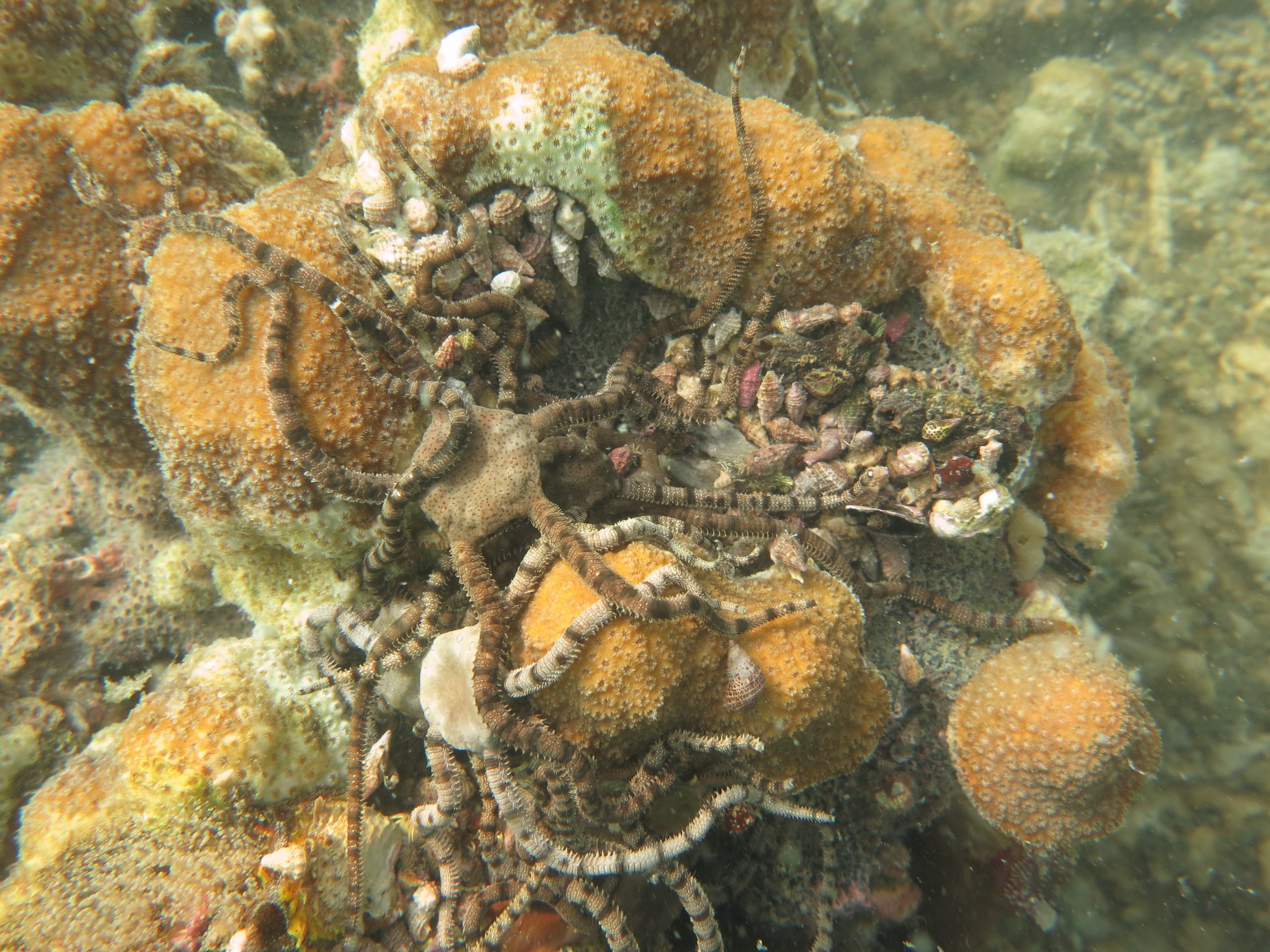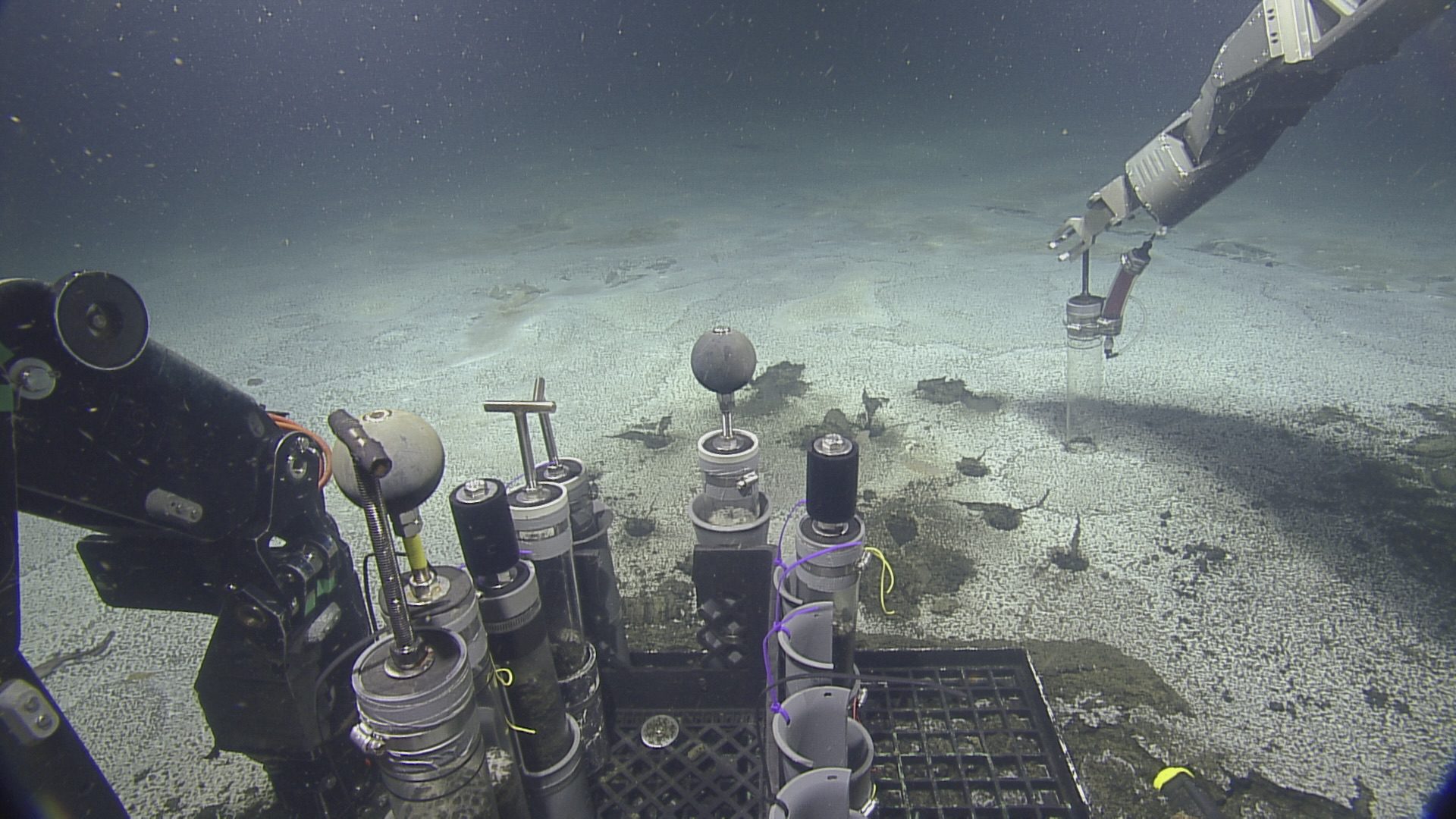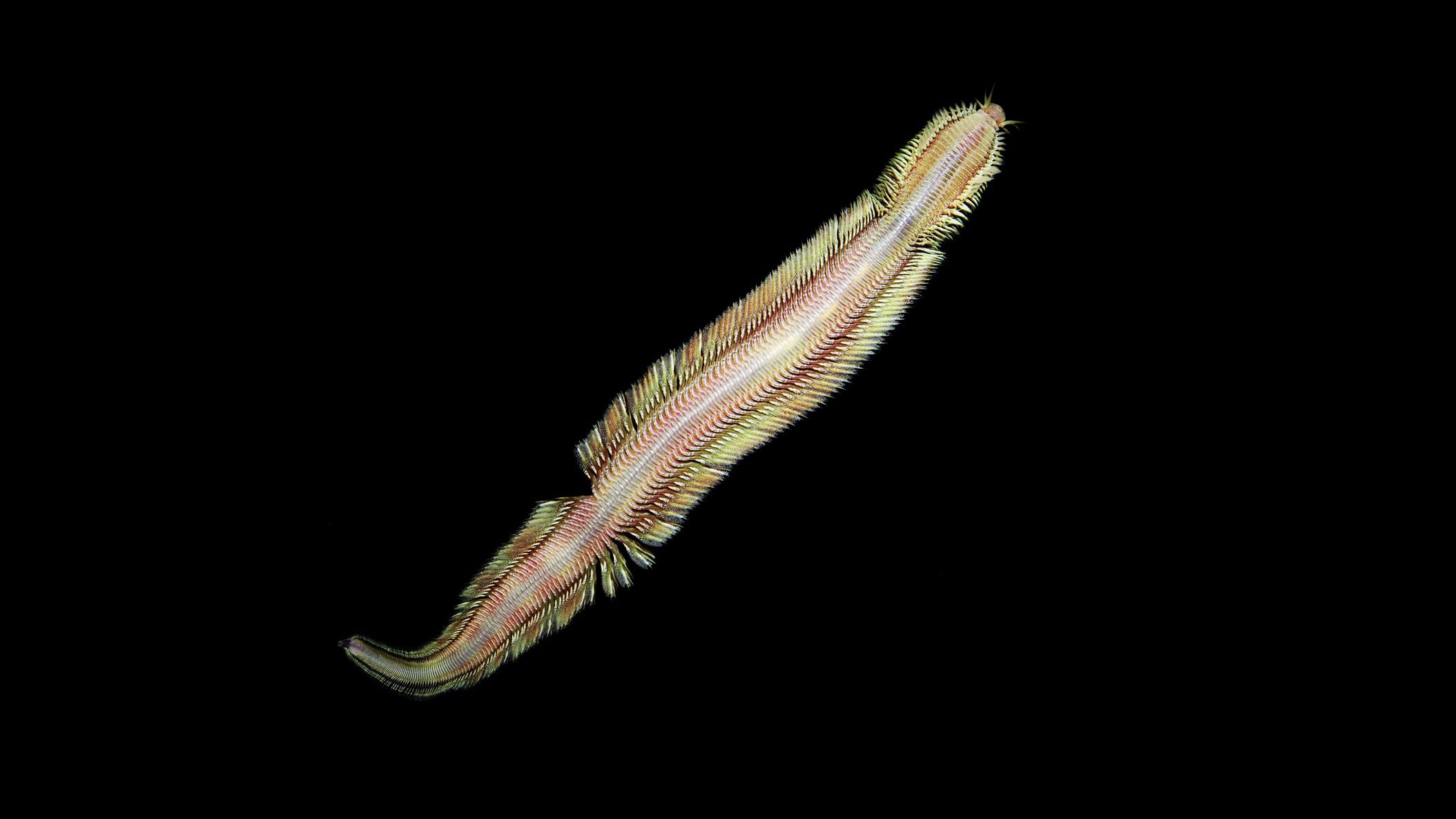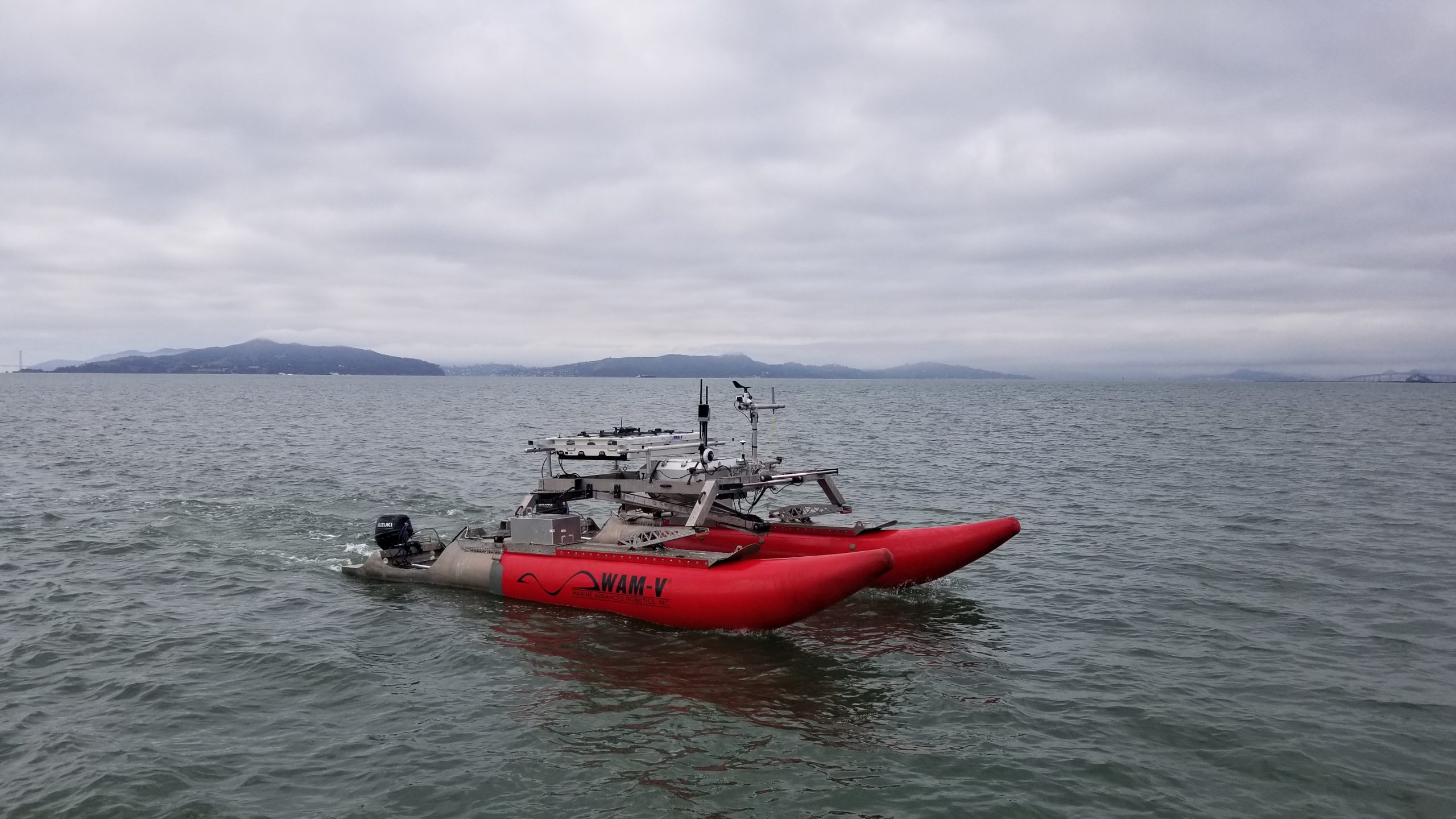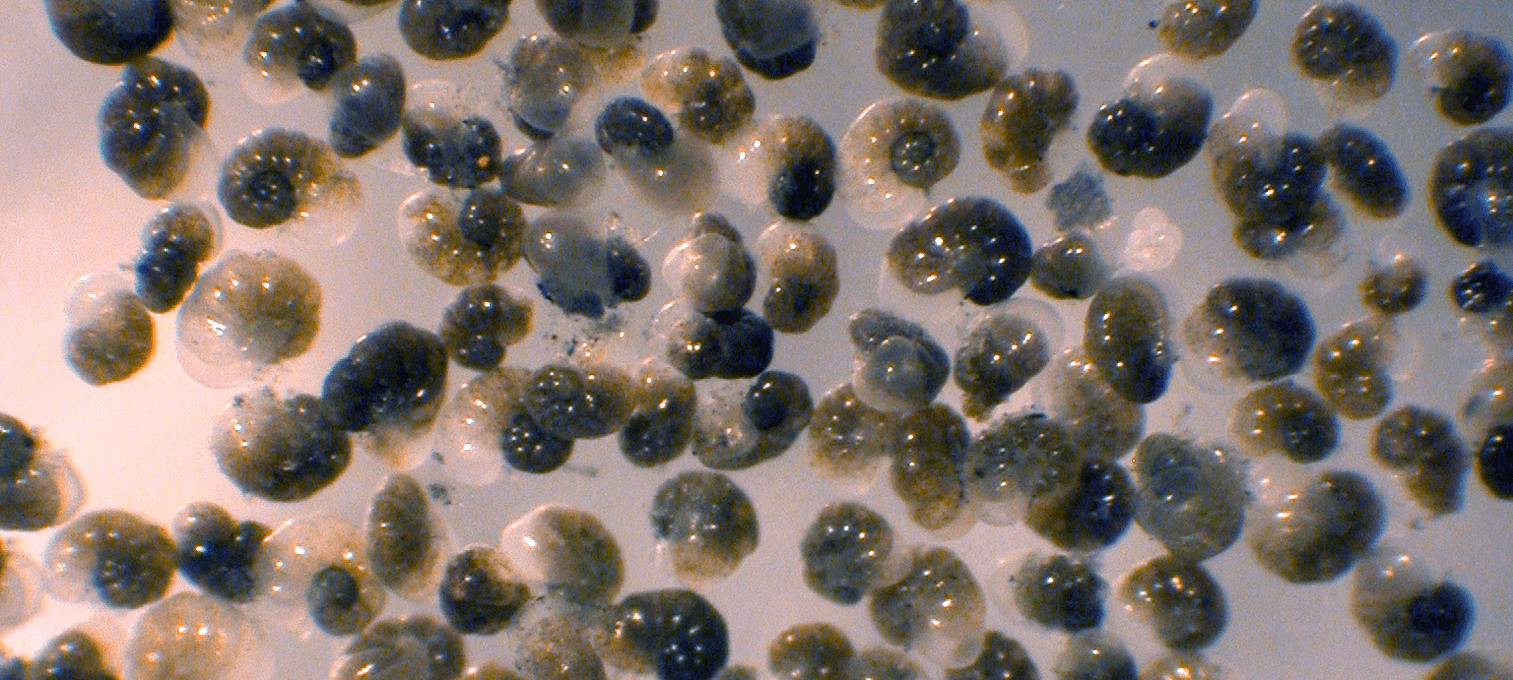News Releases
What happens to marine life when oxygen is scarce?
A new study co-led by WHOI postdoctoral scholar Maggie Johnson looks closely at the changes occurring in both coral reef and microbial communities near Bocas del Toro during sudden hypoxic events, which occur when there is little to no oxygen in a given area of water.
Read MoreNew study provides insight into how some species thrive in dark, oxygen-free environments
New research on single-celled organisms sheds light on deep-sea energy sources
Read MoreNew Deep-Sea Worm Discovered at Methane Seep Off Costa Rica Named after Alvin Pilot Bruce Strickrott
The creature raises the number of new species found by scientists studying these seemingly inhospitable ecosystems to 48 Woods Hole, Mass. — Woods Hole Oceanographic Institution (WHOI), along with…
Read MoreDOE Funding will Support WHOI Research to Support Sustainable Development of Offshore Wind
Woods Hole, MA — The Woods Hole Oceanographic Institution (WHOI) has received $750,000 in funding from the U.S. Department of Energy (DOE) to develop next‐generation autonomous robotic technology for environmental…
Read MoreSome Forams Could Thrive with Climate Change, Metabolism Study Finds
Oceanic deoxygenation is increasingly affecting marine ecosystems. A new paper that examines two foram species found that they demonstrated great metabolic versatility to flourish in hypoxic and anoxic sediments where there is little or no dissolved oxygen, inferring that the forams’ contribution to the marine ecosystem will increase with the expansion of oxygen-depleted habitats.
Read MoreResearchers Assess Radioactivity Released to the Ocean from the Fukushima Dai-Ichi Nuclear Power Facility
The impact on the ocean of releases of radioactivity from the Fukushima nuclear power plants remains unclear. But a new study by U.S. and Japanese researchers analyzes the levels of radioactivity discharged from the facility in the first four months after the accident and draws some basic conclusions about the history of contaminant releases to the ocean.
Read MoreWHOI Receives Gordon and Betty Moore Foundation Grant for Oceanography Imaging Informatics
In a significant step toward a new era in the collection and understanding of ocean science data, the Woods Hole Oceanographic Institution (WHOI) has received a grant of more than $2 million from the Gordon and Betty Moore Foundation for work in imaging informatics in oceanography.
Read MorePioneering Deep-Sea Robot Lost at Sea
A pioneering deep-sea exploration robot—one of the first successful submersible vehicles that was both unmanned and untethered to surface ships—was lost at sea Friday, March 5, on a research expedition…
Read MoreIn CO2-rich Environment, Some Ocean Dwellers Increase Shell Production
In a striking finding that raises new questions about carbon dioxide?s (CO2) impact on marine life, Woods Hole Oceanographic Institution (WHOI) scientists report that some shell-building creatures?such as crabs, shrimp and lobsters?unexpectedly build more shell when exposed to ocean acidification caused by elevated levels of atmospheric carbon dioxide (CO2).
Read MoreNew Hydrothermal Vent Sites Found, Original Vent May Have been Covered by Volcanic Eruption
The “Rose Garden” – one of the most well-visited and lush communities of seafloor vent life – may have been paved over by a recent volcanic eruption. But scientists on a just-completed expedition near the Galapagos Islands have discovered a thriving new community of very young tubeworms, clams, and mussels, which they have called “Rosebud.”
Read MoreMajor Cruise to Galapagos Rift Marks 25th Anniversary of Deep Sea Hydrothermal Vent Discovery
In 1977, scientists made a stunning discovery on the bottom of the Pacific Ocean that forever changed our understanding of our planet and life on it. They discovered the first deep-sea hydrothermal vents, andA?to their complete surpriseA?a lush community of exotic life thriving around them.
Read MoreNearshore Observatory to be Installed off Martha’s Vineyard for Long-term Meteorological and Oceanographic Studies
Real-time data on coastal storms, on movement of sand that buries harbor entrances and inlets, and on the impact of winds on shoreline processes will soon be available through a…
Read More
